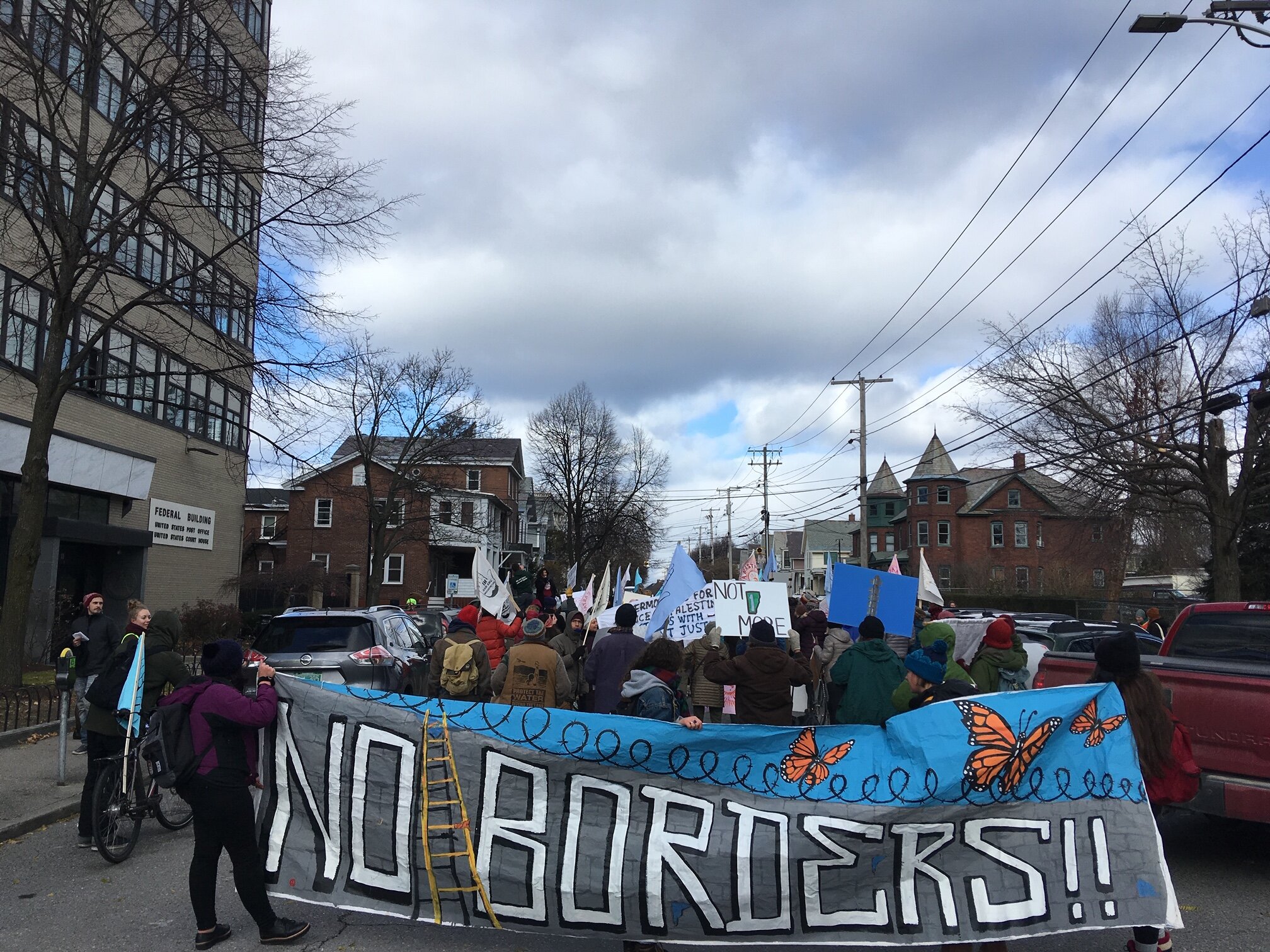Research and activism
In September 2018, I began research with Migrant Justice, a migrant led labor rights organization in Vermont, US, hoping to reach a deeper understanding of the relationships between economic migration, border policy, human rights, and resistance by examining contemporary labor organizing in a complicated context and site: Vermont’s dairy industry. Migrant Justice formed in 2009 following the death of a migrant dairy worker, José Obeth, on a farm in Vermont, due to poor working conditions. This death set off a chain reaction of labor organizing by migrants on dairy farms in the state, beginning with successful fights for access to healthcare and drivers licenses and quickly moving to a nationwide labor rights struggle organized under the banner of the Milk with Dignity Campaign.
On November, 14, 2018, just two months after I joined Migrant Justice in Burlington, VT, the group filed a lawsuit in federal court against United States Immigration and Customs Enforcement (ICE), the Department of Homeland Security (DHS), and the Vermont Department of Motor Vehicles (DMV) for targeting them in what they say had been direct retaliation for their speech, activism and assembly—political repression in the name of border policy that violated the plaintiffs’ First Amendment rights. A Freedom of Information Act request filed by the group had revealed the ways in which ICE had electronically and physically surveilled them, often in coordination with state agencies such as the DMV, in efforts that led to the detention, and at times deportation, of the group’s members. ICE had been more closely surveilling Migrant Justice for at least two years, which included the use of a covert informant who attended many meetings, events, rallies, and assemblies and had become an active member of the organization only to feed information back to ICE. However, as Migrant Justice argues, their case is not an isolated or rare occurrence, but part of a nationwide trend in border policies in which United States federal immigration agencies are increasingly targeting activists and organizers in migrant communities (Migrant Justice v. U.S. Department of Homeland Security 2018).
Just two years later, Migrant Justice announced an unprecedented legal settlement with ICE, hard fought by Migrant Justice and a team of legal allies. This victory is nationally significant and provides one more instance where the group is expanding rights as we know them, both in concept and application, for actors who have historically been told they are ‘rightless’.
Fundamentally, my research approaches questions regarding the intersection of political and geographical divisions of rights through the lens of migration. The contemporary context, being the intensification of anti-immigrant policy over the last three decades in the U.S., calls for new analyses of the forms of activism that have arisen in response. This work builds on critical theories within geography, migration studies, legal studies, citizenship studies, and political theory through an analysis of migrant actors that are calling forth alternative applications of rights and transforming political and legal landscapes in the process.
I completed research with Migrant Justice and successfully defended my subsequent dissertation in August 2021 at the Graduate School of Geography, Clark University. I have revised this work into a book, out now at University of Georgia Press.
I have also adapted two articles from this book. One has just been published by Antipode here: https://onlinelibrary.wiley.com/doi/epdf/10.1111/anti.13010?domain=author&token=EYDJ726RREYFHXRIKQ6X, and another and Enivonment and Planning C: Politics and Space here: https://doi.org/10.1177/23996544241230958
Most importantly, however, check out Migrant Justice’s work at: migrantjustice.net
